The complete history of Star Wars on PC
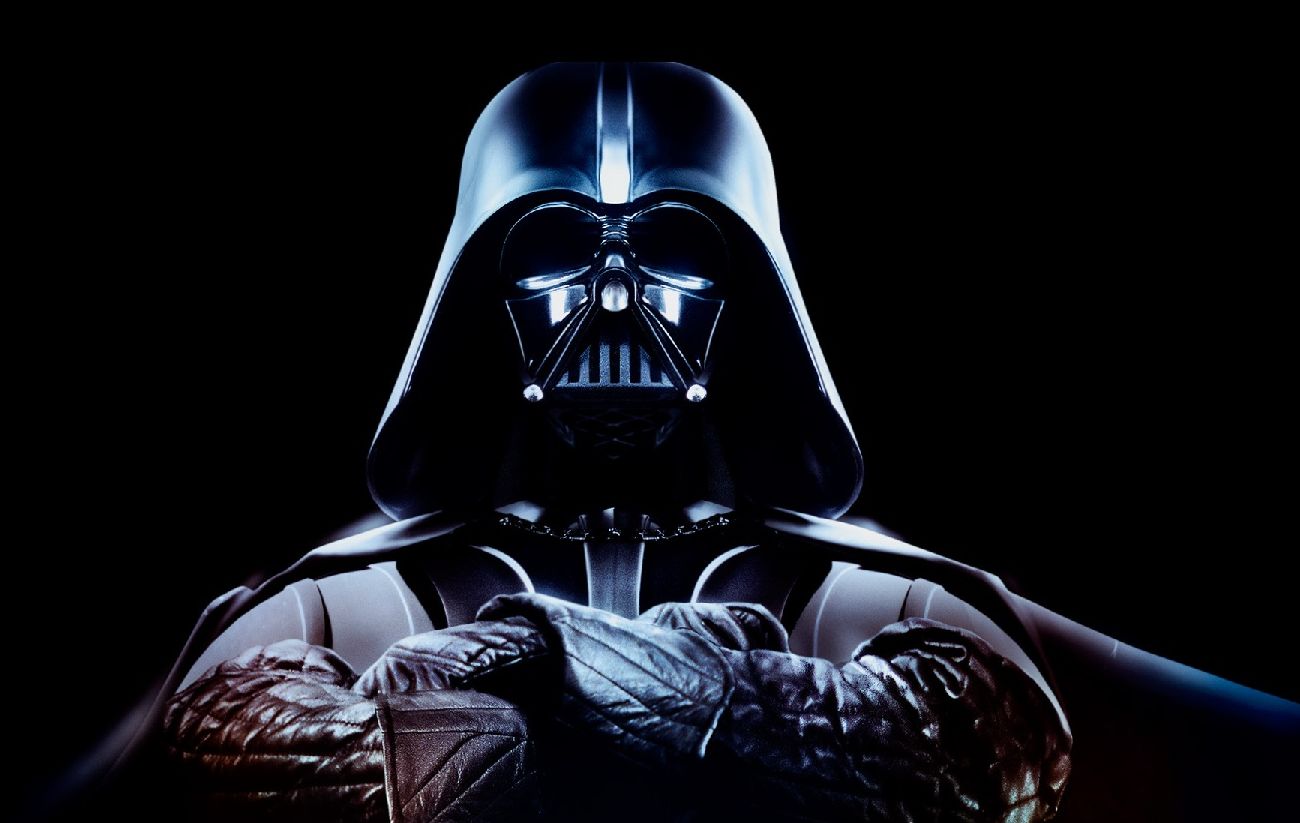
This article was originally published in PC Gamer issue 279. For more quality articles about all things PC gaming, you can subscribe now in the UK and the US.
Star Wars weaves itself in and out of the history of PC games, occasionally yielding genre-advancing greatness and sometimes coughing up the most mercantile dross you might ever regretfully buy.
The story of the games mirrors that of the film series as a whole. Sometimes, the link is obvious—as when the arrival of the prequel trilogy plunged the franchise into a dark new era. At other times, it’s more subtle. Star Wars games, particularly those on PC, did much to advance the notion that this galaxy far, far away was a real place, governed by real rules and principles—a setting that could be simulated, not just presented as pastiche. The best games actively enhance the source material rather than merely doing justice to it. As Disney—Star Wars’ new owner—moves away from traditional games towards browser and mobile, it’s an idea that might be lost. But if Star Wars has taught us anything, it’s that good wins out in the end—even if it becomes more machine than human along the way.
Star Wars
RELEASED 1988 | DEVELOPER Atari / Vektor Grafix
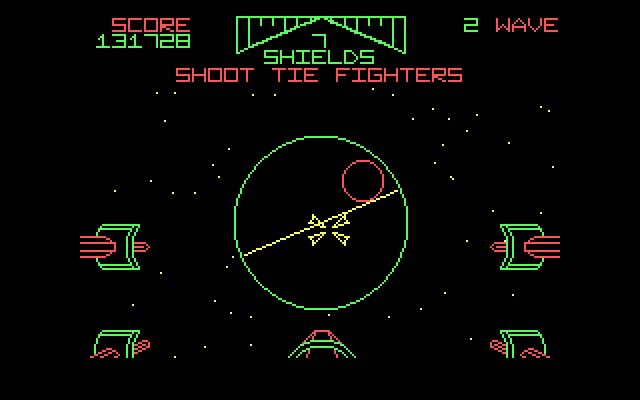
Despite being a rudimentary rail shooter, it’s remarkable just how much the original vector-drawn Star Wars arcade game anticipated about later games. Later takes on the Death Star trench run had you blowing the tops off turrets in the exact same way you do here. Notable also for the clumsily digitised voice of Sir Alec Guinness.
Star Wars: Return of the Jedi
RELEASED 1988 | DEVELOPER Atari
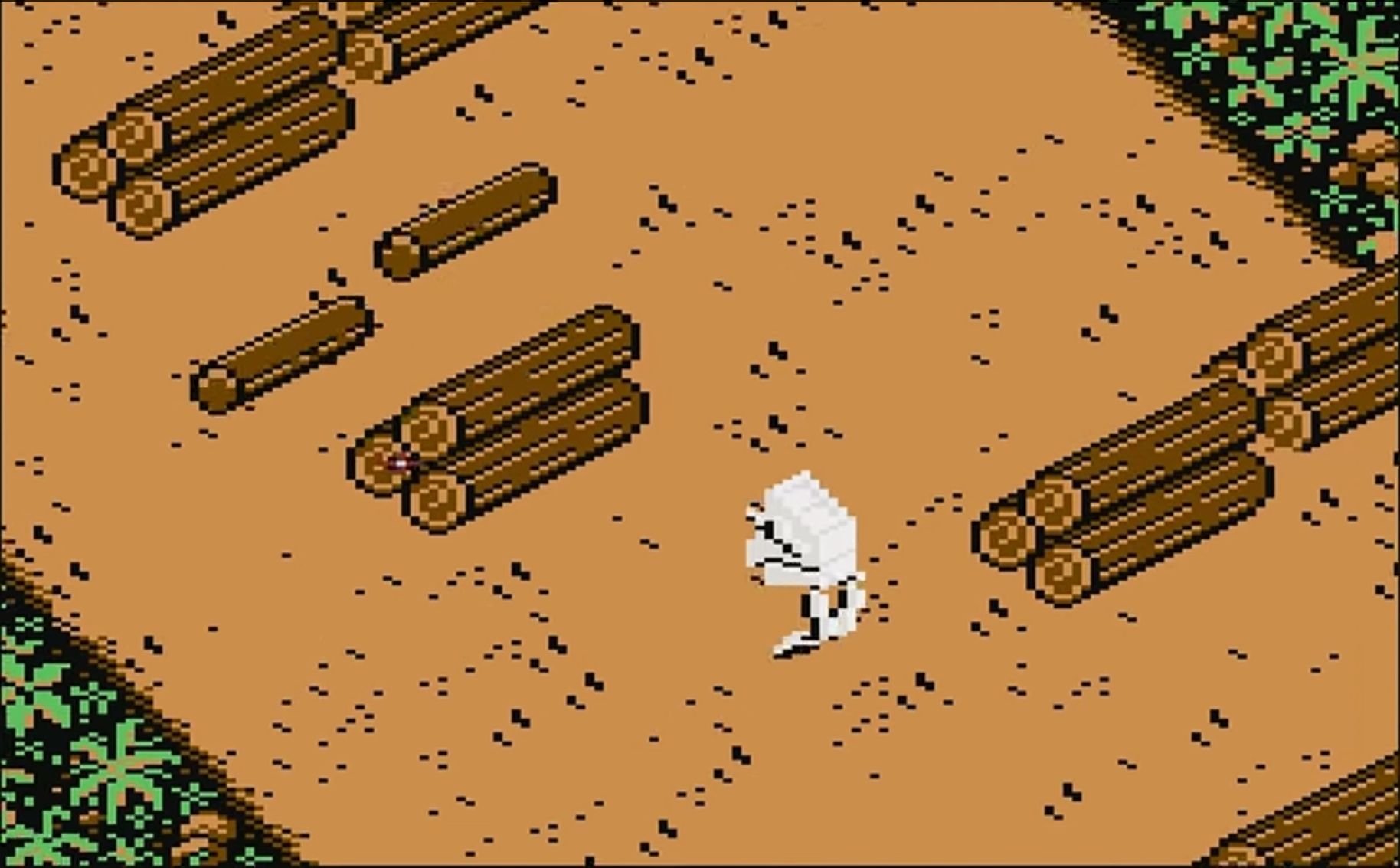
This follow-up to the Star Wars arcade cabinet uses a diagonal-scrolling isometric view to represent everything from a speederbike chase to the Millennium Falcon’s run at the second Death Star. The technique is stretched to its logical extreme when you find yourself dodging an endless stream of Ewok log traps as a questionably manoeuvrable AT-ST. It’s actually aged worse than its predecessor: while the original’s vector graphics make it feel like a crude forebear to the later, greater space combat sims, this just comes off as an attempt to jam as many Star Wars set-pieces as possible into Frogger.
The biggest gaming news, reviews and hardware deals
Keep up to date with the most important stories and the best deals, as picked by the PC Gamer team.
Star Wars: Rebel Assault
RELEASED 1993 | DEVELOPER LucasArts
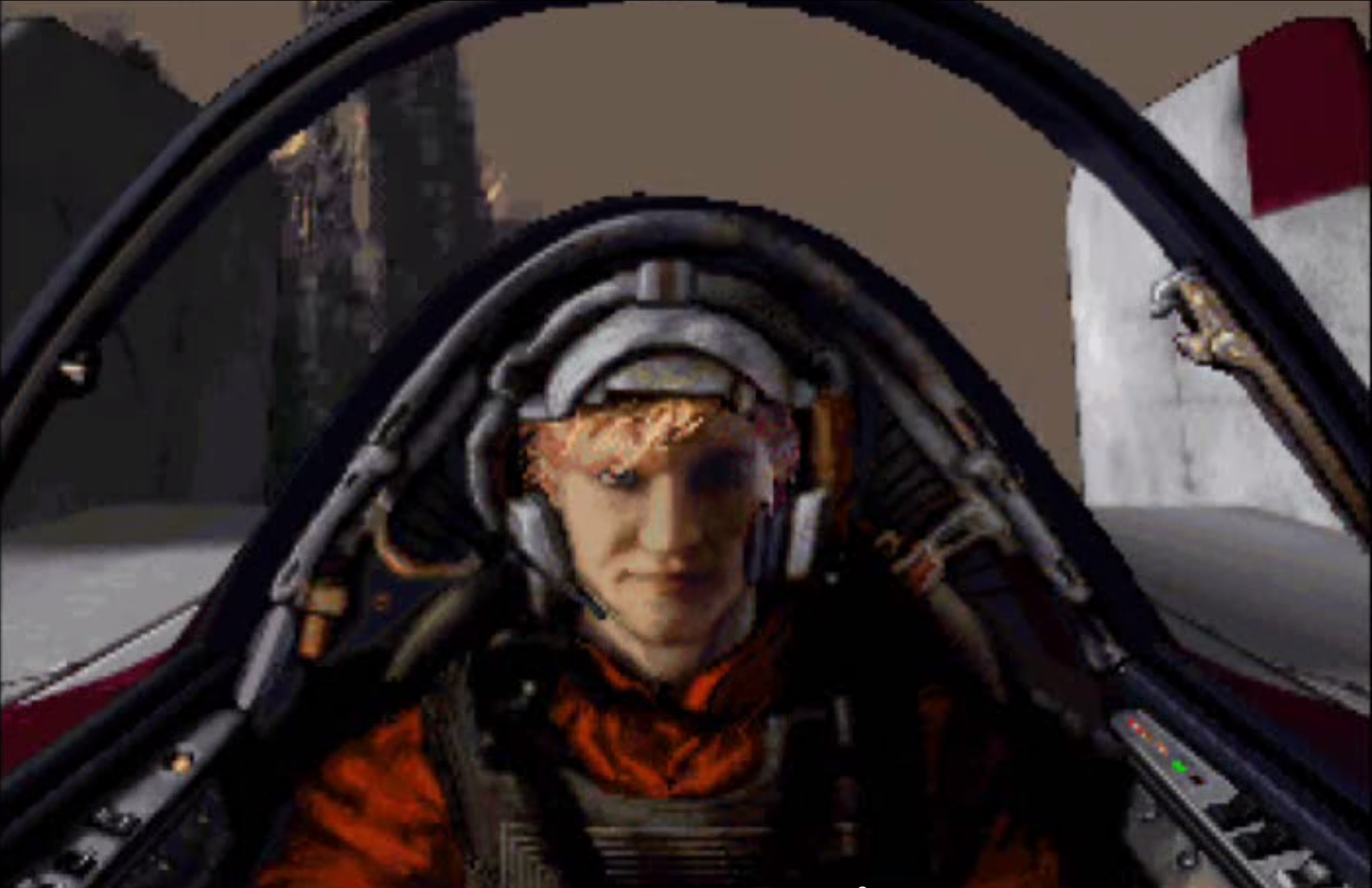
In the dark times before somebody thought to make actual games about Star Wars, this is what you got: the rail-shooter framework strapped to the clumsiest excesses of ’90s FMV. I found it tremendously evocative at the time, and the pre-rendered visuals were stunning—but it’s aged worse than the fan-fic I wrote about it.
Star Wars: X-Wing
RELEASED 1993 | DEVELOPER Totally Games
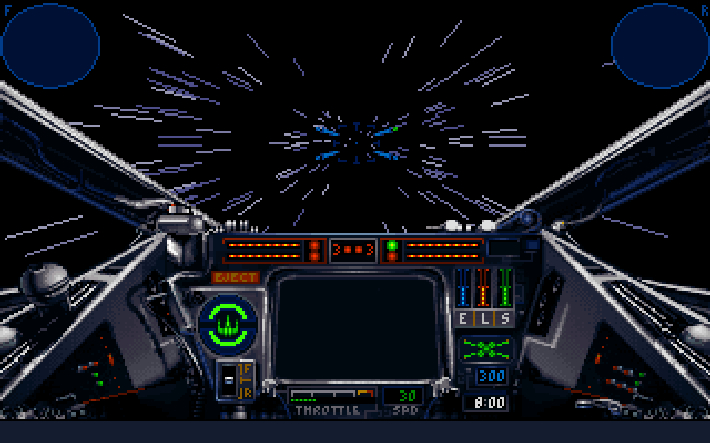
To really understand the troubled duality of Star Wars gaming, consider that X-Wing and Rebel Assault came out in the same year. The former: crap FMV tied to a fidgety arcade game. The latter: an earnest attempt to simulate the actual devices and conflicts of the Star Wars universe. X-Wing was groundbreaking because it was a movie tie-in that not only respected the source material, but built upon it. Thousands of fans understand the workings of an X-Wing starfighter thanks largely to this game’s unusual attention to detail. This wasn’t just about being plonked down in a rudimentary rendition of a familiar scene: it was about actually getting to fl y one these beloved starfighters for yourself. Despite the crude visuals, it holds up today—the pixel rendition of an X-Wing cockpit is even lovely, if you squint. Newcomers should go straight to the sequels.
Star Wars: TIE Fighter
RELEASED 1994 | DEVELOPER Totally Games
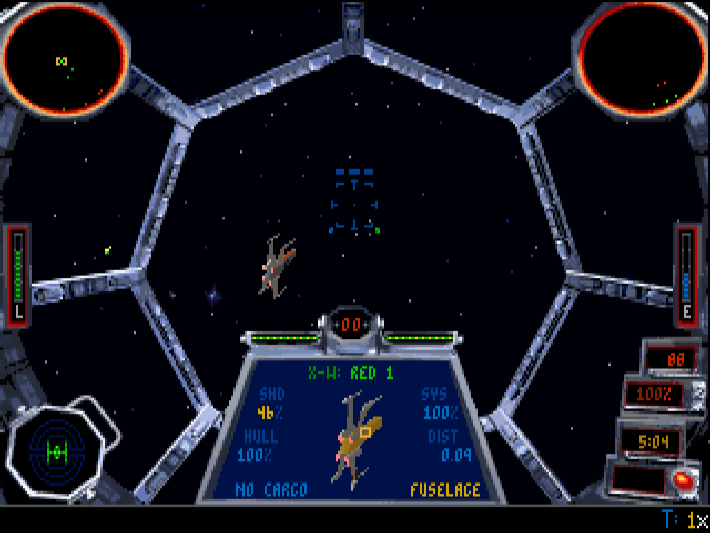
Beyond picking up where X-Wing left off, this spacebased combat sim stands out for being among the first Star Wars games to confidently tell its own story and offer a different spin on the source material—presenting the Empire’s rank-and-file in a more positive light. Part of the golden age of the Expanded Universe.
Star Wars: Rebel Assault II: The Hidden Empire
RELEASED 1995 | DEVELOPER LucasArts
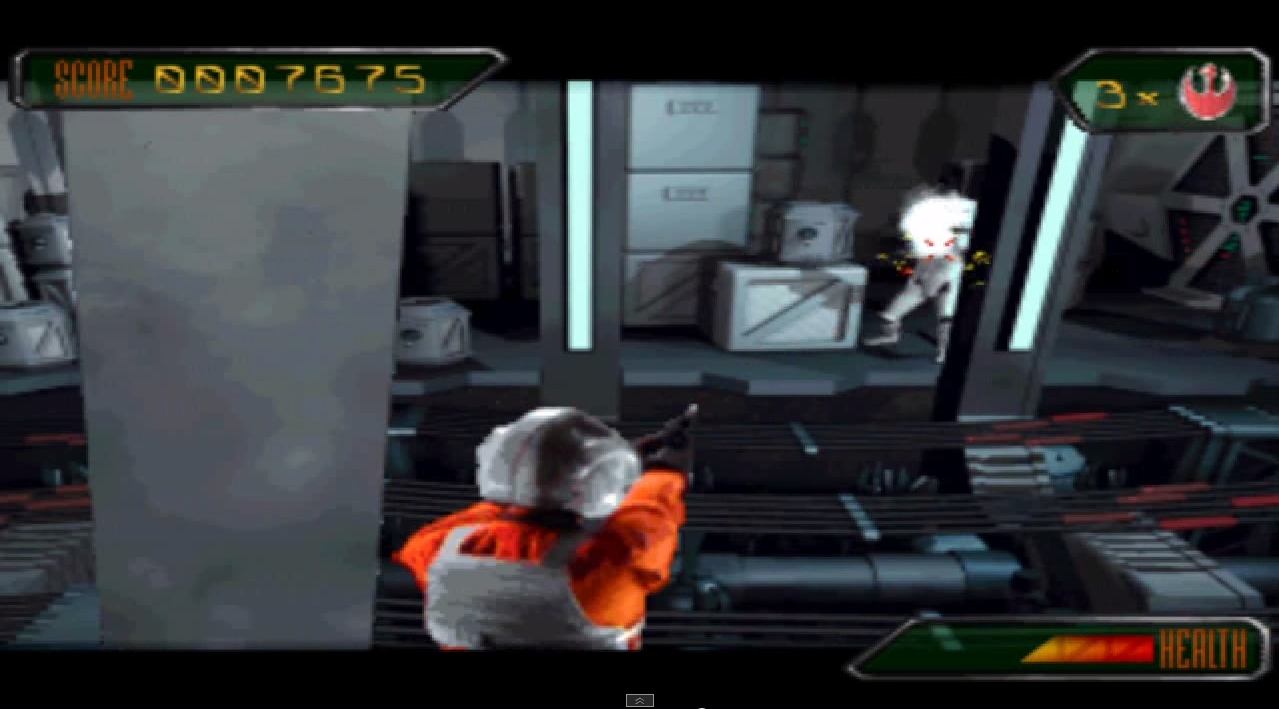
I have an enduring affection for the overweight and middle-aged FMV X-Wing pilot who shows up half way through Rebel Assault II because I assume he’s someone’s dad. Beyond that, though, this is a dodgy fan-film strapped to a shooter where you pan left and right to make a photo of a rebel soldier shoot pop-up stormtroopers.
Star Wars: Dark Forces
RELEASED 1995 | DEVELOPER LucasArts
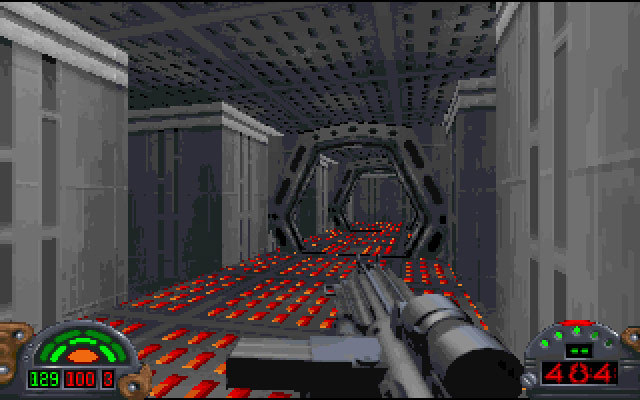
Dark Forces and Rebel Assault II are another set of strange contemporaries. While indebted to Doom’s ‘rat in a maze with a gun’ formula, Dark Forces paid fresh attention to both telling a story and giving the player greater freedom of movement—including jumping, crouching, and free-look. Its attempts to tie-in to the story of the original trilogy are a little hamfisted, but the Kyle Katarn saga that begins here picked up a lot of fans over the course of its run. It remains playable today, particularly if you’ve got fond memories of the era of being totally lost in sprawling FPS levels. It is relentlessly grey and monotonous, mind—they weren’t joking when they called it ‘Dark’ Forces.
Star Wars: X-Wing vs. TIE Fighter
RELEASED 1997 | DEVELOPER Totally Games
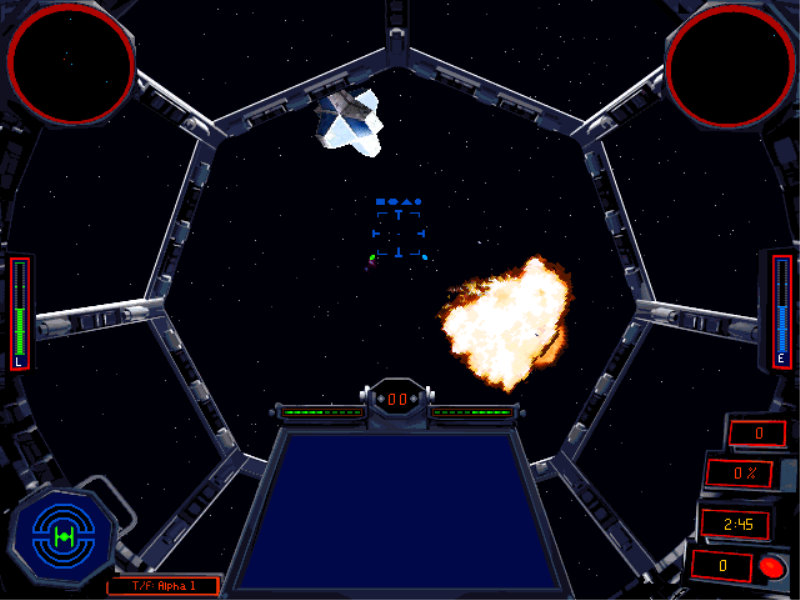
Arguably the best of the series, X-Wing vs. TIE Fighter boasts texture mapping, a huge array of multiplayer options and, via the Balance of Power expansion, substantial singleplayer campaigns. The AI is superior to X-Wing Alliance, too, so it’s worth returning to on that basis alone. A landmark Star Wars game.
Star Wars: Jedi Knight: Dark Forces II
RELEASED 1997 | DEVELOPER LucasArts
An epochal Star Wars shooter, Dark Forces II pioneered the combination of firstperson blasting and third-person, acrobatic lightsaber combat. While ultimately eclipsed by its successors, the techniques and powers introduced here are incredibly important to Star Wars games as a whole. Your fond memories of Dark Forces II may not include the incredibly cheesy FMV, however. Presumably they switched to in-engine cutscenes for Mysteries of the Sith because there wasn’t any scenery left to chew. Better: the effort expended to realise a proper ‘Light Side/Dark Side’ system based on player actions.
Star Wars: Shadows of the Empire
RELEASED 1997 | DEVELOPER LucasArts
The proud history of finding ways to shoehorn new characters into every imaginable Star Wars sequence enters a new chapter in Shadows of the Empire, which opens with mercenary Dash Rendar fighting in the Battle of Hoth before variously rescuing Han Solo, Luke Skywalker and Princess Leia. It’s a passable third-person action game that hasn’t aged particularly well, but at the time it was a pretty big deal—Shadows of the Empire is the Star Wars movie that never got made, a multi-pronged attempt to build interest in the series in the mid-’90s. Between the novel, comics and game it answered questions left hanging from the original trilogy, like ‘where did Luke get that green saber’ and ‘why does Dash Rendar have less personality than a frozen Han Solo.’
Star Wars: Yoda Stories
RELEASED 1997 | DEVELOPER LucasArts
Part of LucastArts’ Desktop Adventures series, this was a set of puzzle rooms where you helped a bobble-headed Luke Skywalker rescue his friends from a variety of predicaments. Features a rare cameo by Indiana Jones, one of only two times LucasArts have made a joke about his resemblance to Han Solo.
On page two we head into a worrisome time for Star Wars games: the turn of the century, and the arrival of the prequel trilogy.
Joining in 2011, Chris made his start with PC Gamer turning beautiful trees into magazines, first as a writer and later as deputy editor. Once PCG's reluctant MMO champion , his discovery of Dota 2 in 2012 led him to much darker, stranger places. In 2015, Chris became the editor of PC Gamer Pro, overseeing our online coverage of competitive gaming and esports. He left in 2017, and can be now found making games and recording the Crate & Crowbar podcast.


